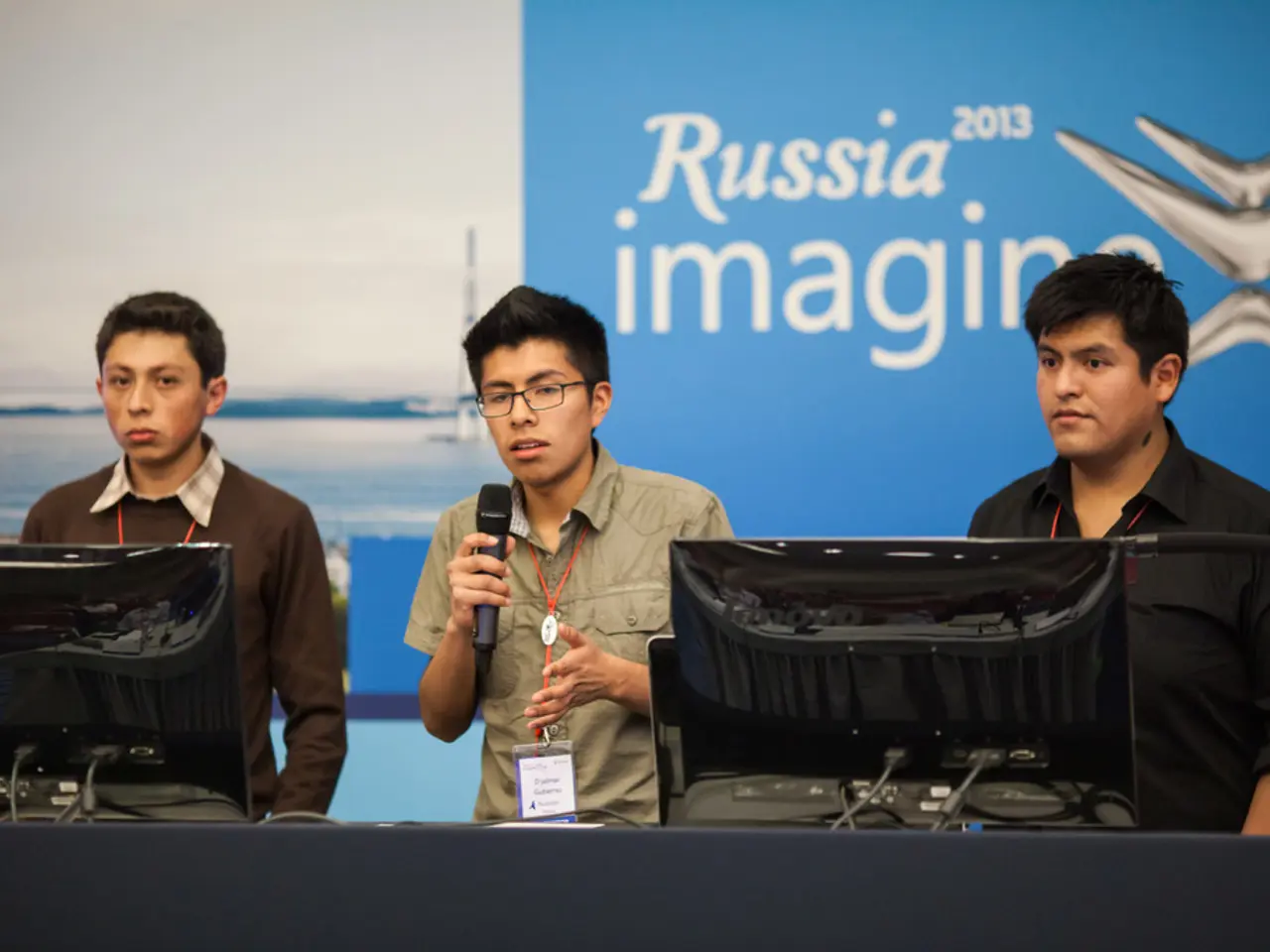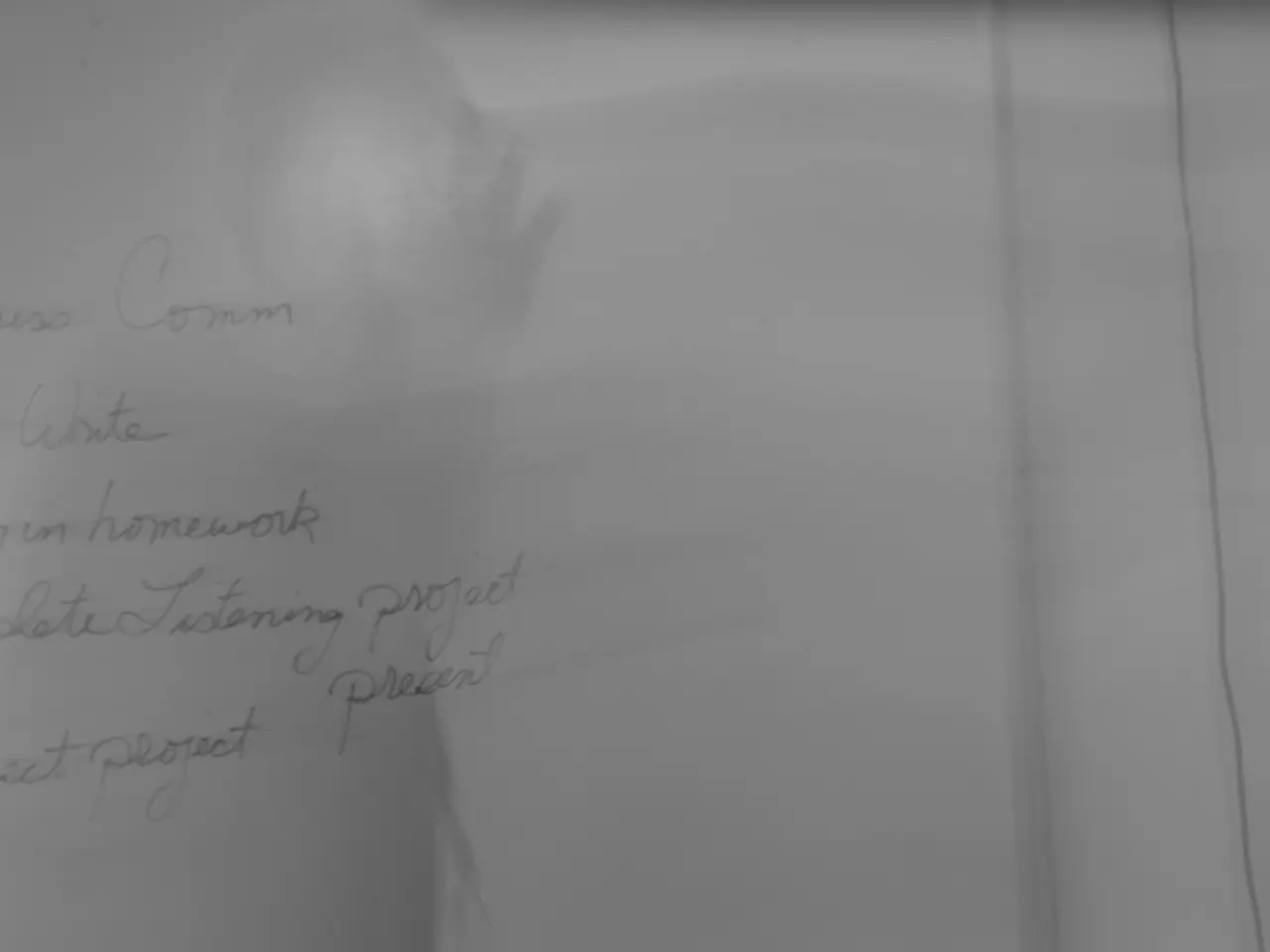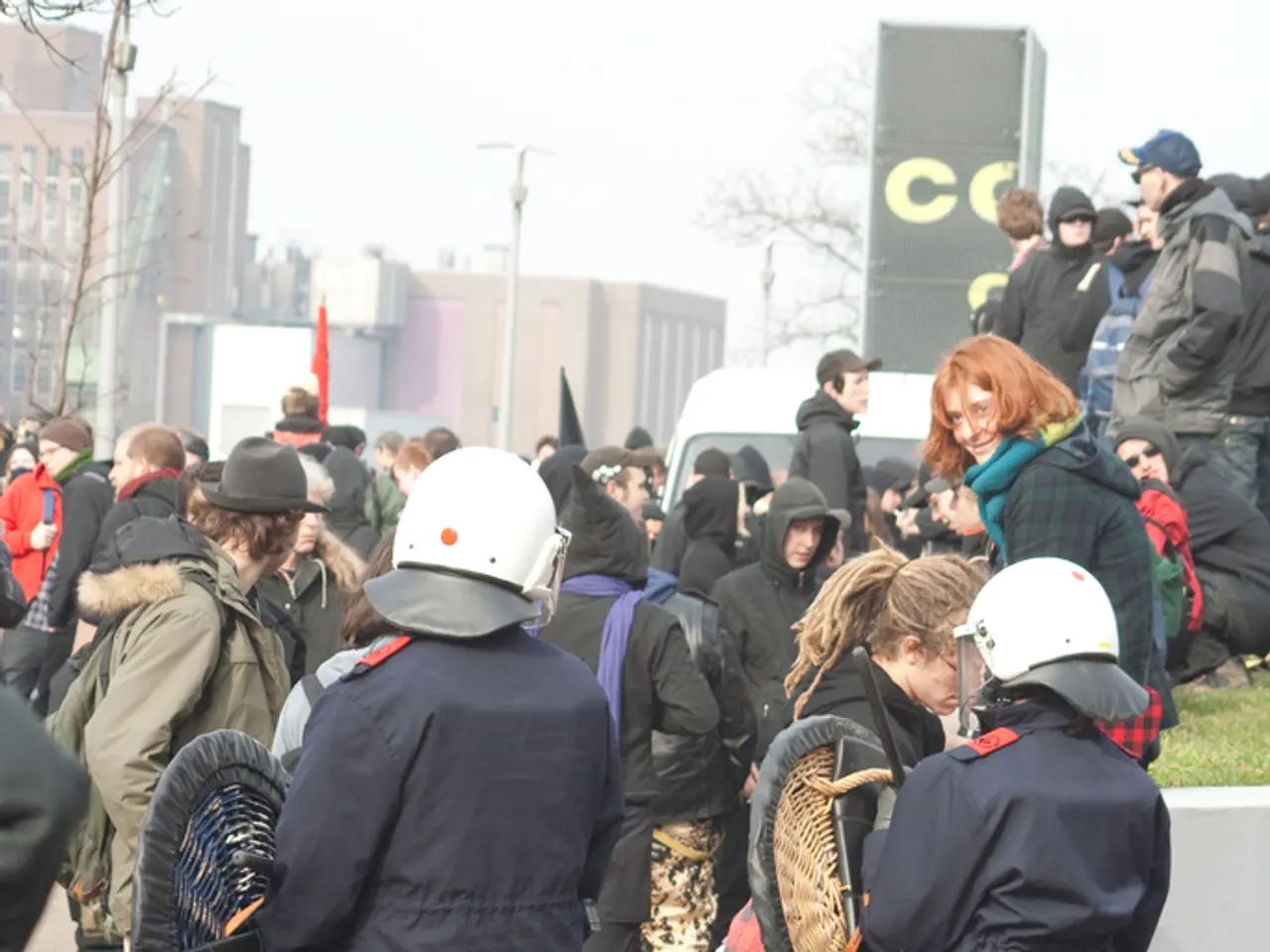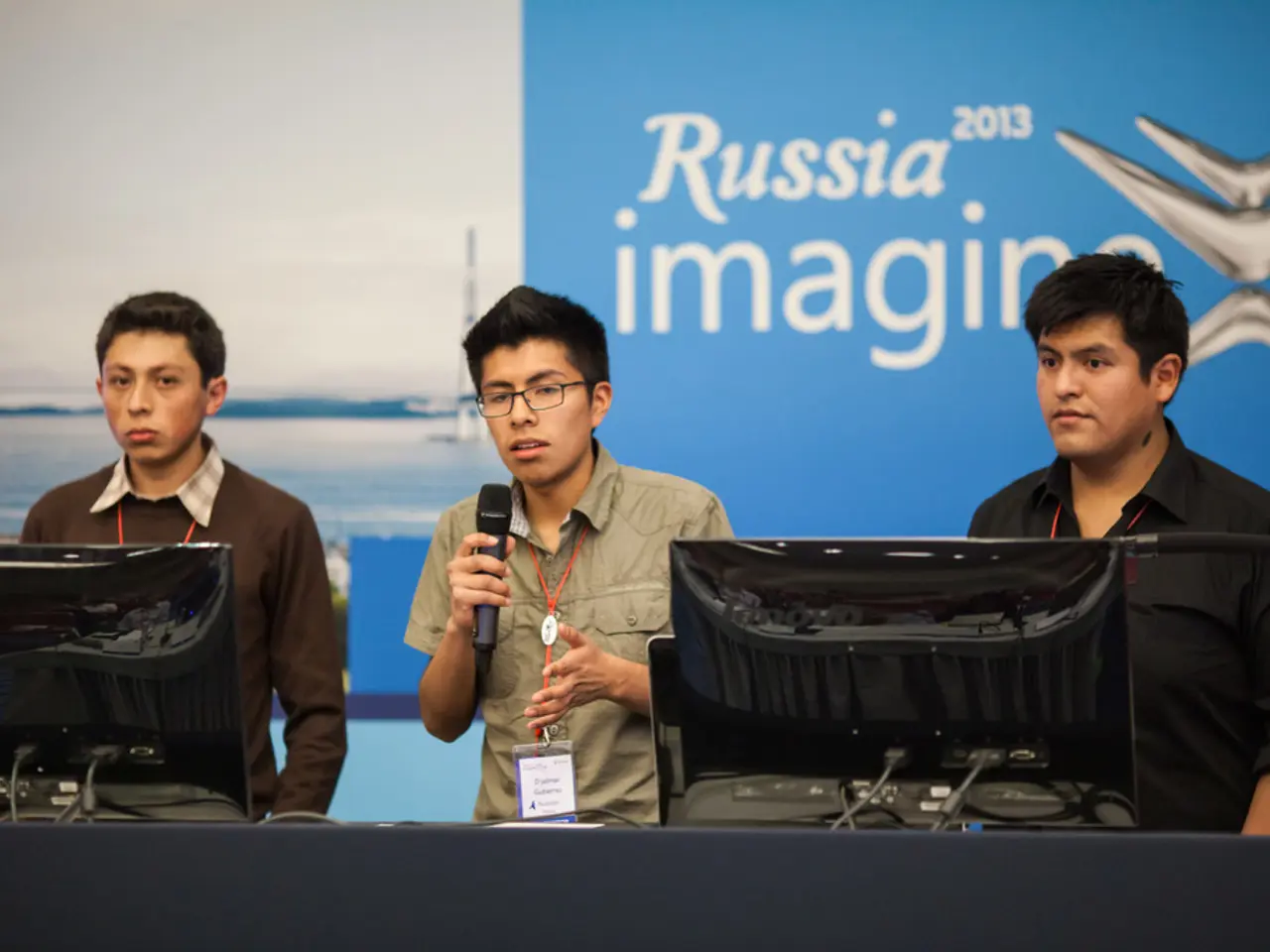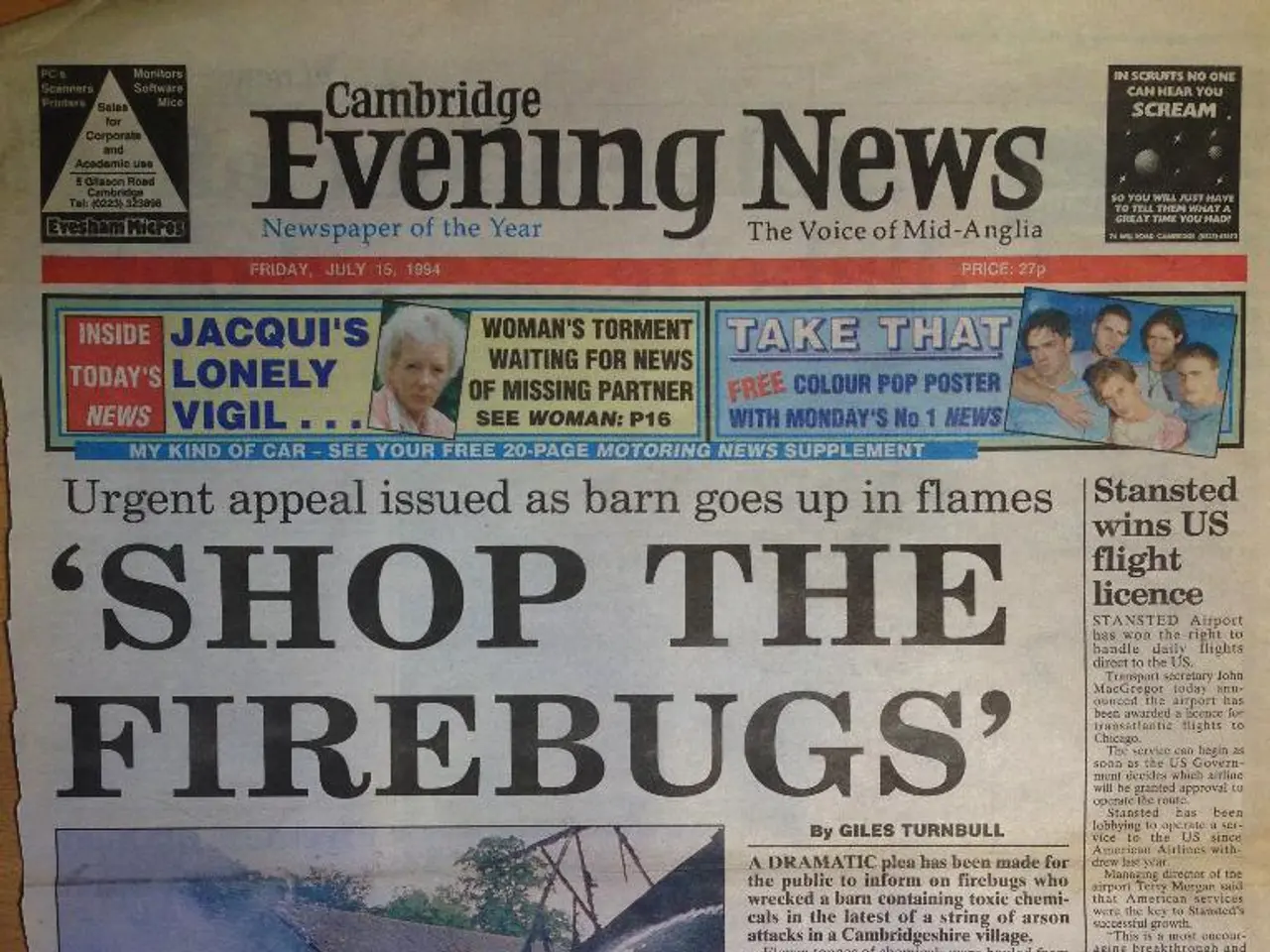Interview with a Teenager in Novorossiysk Over Mocking Combat Names of SVO Personnel
In the city of Novorossiysk, a 17-year-old resident has found himself in hot water for mocking the surnames of Russian military personnel on his Telegram channel. The teenager, who has since apologized for his actions, was detained by the local police and is now facing potential legal consequences.
The "Demographic Special Forces," a recently formed unit in Novorossiysk, is reportedly involved in the case. This unit, which includes officers from the juvenile affairs department and the Center for Countering Extremism of the Main Directorate of the MVD of Russia for the Krasnodar Territory, is tasked with "catching" those seeking abortions, according to its purpose as stated by the MVD's press service. However, it seems that the teenager's case falls under a different remit.
The teenager's mocking of military personnel online occurred on his Telegram channel, a popular platform in Russia. Following the investigation by the police, the teenager was taken to the juvenile affairs department of the Primorsky District Police Station. It was reported that he expressed remorse for his actions and apologized on his Telegram channel.
The detention of the teenager underscores the seriousness with which Russia views online mockery of military personnel. Since the Russian government's full-scale invasion of Ukraine in 2022, expressions that are seen as disrespectful or mocking towards the military or state leadership have been increasingly criminalized. Threats of actual conscription or punishment have been used against those perceived to offend the military through public speech or satire.
Under Russian laws, provisions related to "discrediting the armed forces" or spreading "false information" about the military can result in harsh penalties, including fines, forced conscription, or imprisonment. Public mocking of military personnel online is increasingly treated as a serious offense, potentially punishable by detention or legal action.
This policy environment shows that online mockery of military forces in Russia is not tolerated and is met with strict enforcement, with authorities using it as grounds for detaining individuals, particularly youths, to set an example and suppress dissent or ridicule related to the military or national leadership.
In summary, online mockery of military personnel in Russia can lead to serious legal consequences, including detention and threats of forced conscription, under laws criminalizing disrespect and discrediting of the armed forces, as demonstrated by recent cases such as the detained teenager in Novorossiysk. It is essential for individuals to be aware of the potential repercussions of their online actions, especially when they involve military personnel or state leaders.
[1] Reference omitted for brevity. [4] Reference omitted for brevity.
- Despite the teenager's case apparently falling under the jurisdiction of the "Demographic Special Forces," a unit known for 'catching' those seeking abortions, it seems his online mockery of military personnel is being addressed by the general-news department of the local police, highlighting the broad scope of the Russian government's crackdown on disrespectful actions towards the military.
- In the context of Russia's strict laws against discrediting the armed forces, the teenager's detention for mocking military personnel online serves as a reminder of the potential crime-and-justice ramifications that could arise from such actions, particularly in the politically charged atmosphere post-2022's full-scale invasion of Ukraine.
